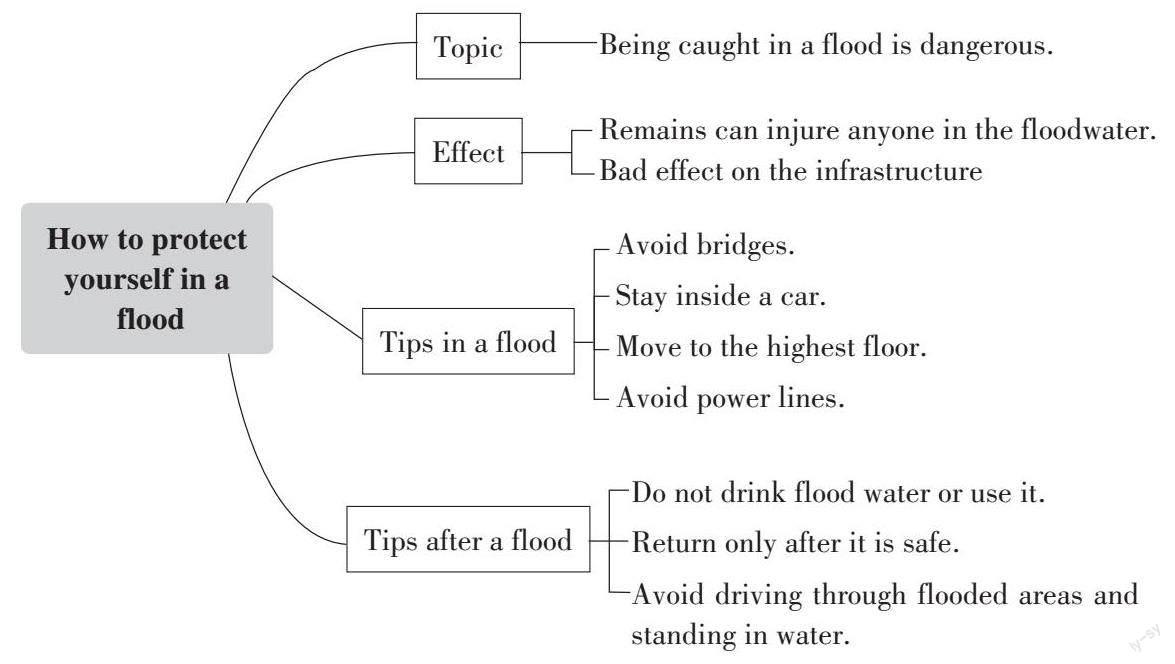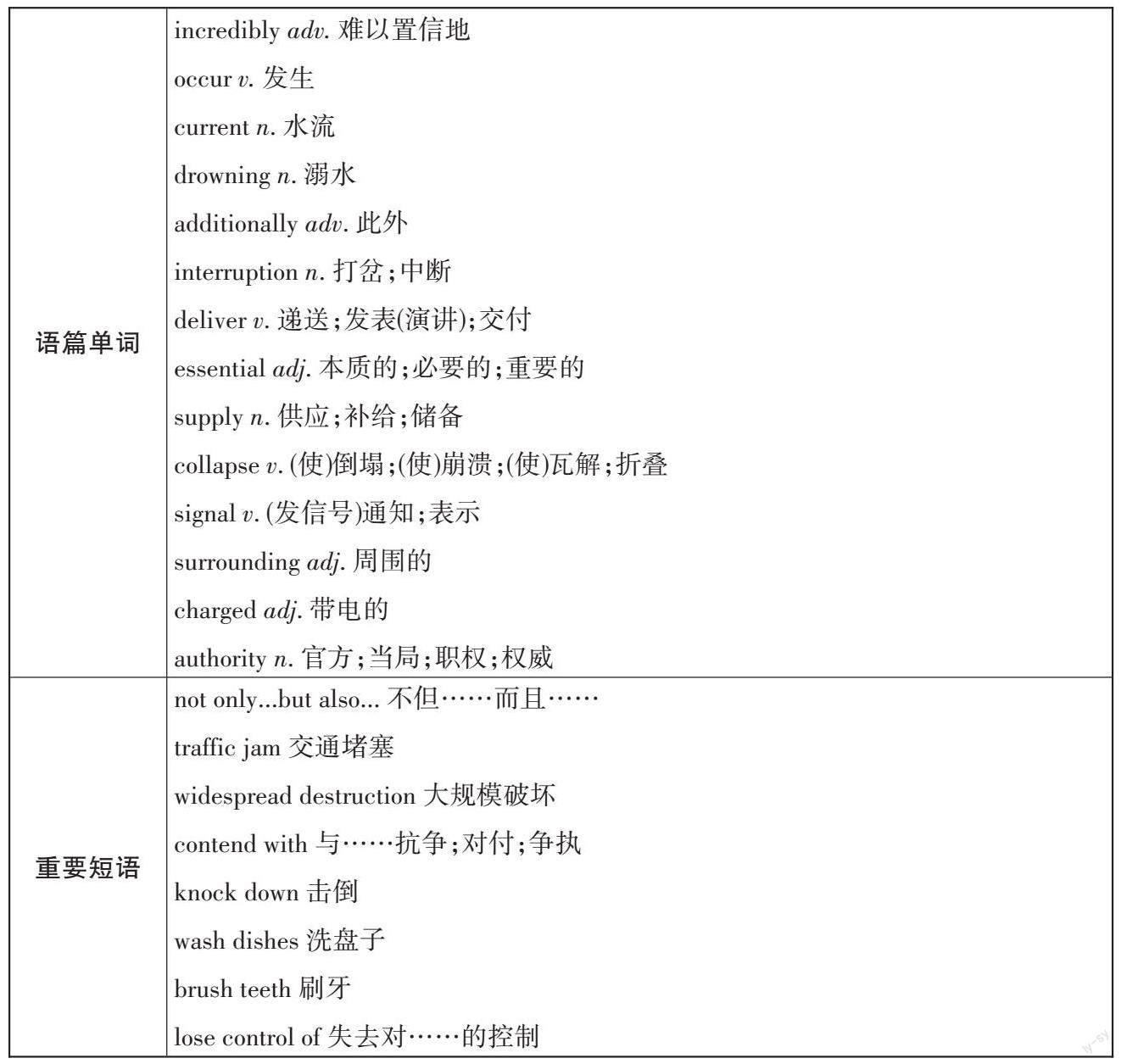如何在洪水中保护自己
李奕群


1 Being caught in a flood is incredibly dangerous. Like many other natural disasters,floods can occur with little or no warning. Flash floods move quickly and have strong currents.
2 Of course, drowning is a threat during a flood, not only because there is so much waterand it's moving quickly, but also because of what the water is carrying. Remains caught inthe current can injure anyone in the floodwater, making it more difficult to swim orwalk in water. Additionally, floods can causepower and communication interruption, trafficjams and widespread destruction. And, the flooditself isn't the only issue to contend with. The ef?fect can be just deadly, as it may not be possibleto deliver essential supplies such as water andfood to the area.
3 Here is the escape guide in a flood: Avoid bridges that cross rapidly moving water, asfloodwaters can cause bridges to collapse. Stay inside a car trapped by fast moving water.Only get out if the water begins to flood the car itself, then move to the roof of the vehicle. Ifyou're trapped within a flooded building, move to the highest floor. And then signal for help(such as drawing SOS on the roof). Avoid power lines as they are often damaged or knockeddown during strong storms and flooding. A downed power line can cause surrounding waterto become charged.
4 You should be careful even after a flood. Do not drink flood water, or use it to washdishes, brush teeth, or wash and prepare food. Drink clean and safe water. Return to yourhome only after local authorities have said it is safe to do so. Avoid driving through floodedareas and standing in water. As little as six inches of water can cause you to lose control ofyour vehicle.
ReadingCheck
1. What is paragraph 2 mainly about?
A. The cause of flood. B. The effect of flood.
C. The warning of flood. D. The happening of flood.
2. What should be done in a flood?
A. Raise power lines. B. Cross bridges rapidly.
C. Move to the highest floor. D. Stay inside a car in any situation.
3. Why should we avoid driving through flooded areas according to the text?
A. The water may harm your skin.
B. The power of water is unpredictable.
C. The depth of water is hard to measure.
D. The water may cause your car to break down.
4. Where can we read the text?
A. In a novel. B. In a diary.
C. In a storybook. D. In a science book.
? 语篇解码
本文是一篇说明文。文章主要介绍了洪水的危害、洪水到来时以及洪灾过后的逃生策略和注意事项。
Ⅱ. 语句分析
1. Remains caught in the current can injure anyone in the floodwater, making it moredifficult to swim or walk in water. 水流中的殘骸会伤害洪水中的任何人,使其在水中游泳或行走更加困难。
【点石成金】本句中,making it more difficult to...为结果状语,表示“使得……更加困难”;it在此处为形式宾语,真正的宾语是to swim or walk in water。
2. The effect can be just deadly, as it may not be possible to deliver essential suppliessuch as water and food to the area. 这种影响可能是致命的,因为这样可能无法向该地区提供水和食物等基本物资。
【点石成金】本句中,as引导的原因状语从句,意为“因为”;it may not be possibleto deliver essential supplies中的it为形式主语,真正的主语是后面的to deliver essentialsupplies。
? 语言运用
Ⅰ. 例句仿写
1. 事实上,在一场重要的足球比赛中维持秩序对警察来说是一份艰巨的工作。In fact,______is a hard job for the police______inan important football match.
2. 他们一直认为学习压力很大,这使得开始变得很难。They consistently rated the idea of studying as very stressful, ______.
Ⅱ. 写作实践
假定你是某国际学校的一名高中生,你校近期将举行自然灾害避险科普周(NaturalDisaster Prevention and Mitigation Science Week),请你写一篇宣传稿,内容包括:
1. 介绍科普周的时间和意义;
2. 号召同学们踊跃参加。
注意:
1. 词数80左右;
2. 可以适当增加细节,以使行文连贯。
Dear all,
__________________________________________________________________________________
__________________________________________________________________________________

